Counting skills Easy Worksheets for Ages 3-7
90 filtered results
-
From - To
Welcome to our "Counting Skills Easy Worksheets" page, designed for children ages 3-7! Our engaging worksheets are tailored to help young learners develop essential counting skills through fun and interactive activities. Featuring vibrant illustrations and age-appropriate exercises, these worksheets maintain your child's interest while enhancing their number recognition, one-to-one correspondence, and basic addition skills. Perfect for home or classroom use, parents and teachers can effortlessly print these resources to enrich math learning. Explore our diverse range of activities that make counting a delightful experience, empowering your little ones with the confidence to master foundational math concepts!


Christmas Tree Tracing Winter Words Worksheet
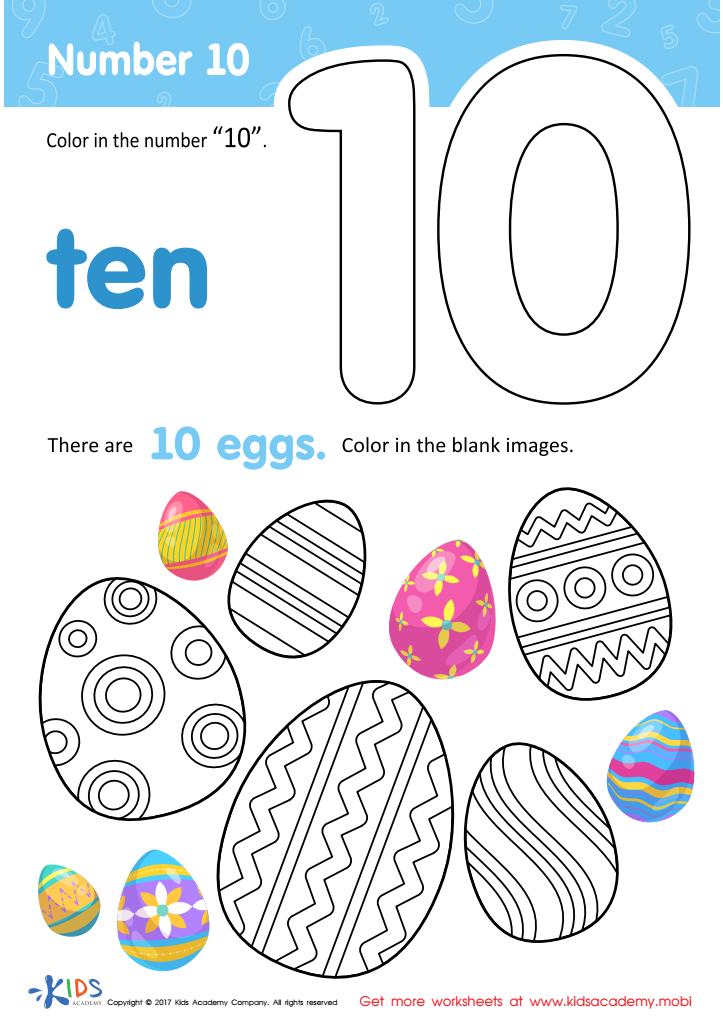

Number 10 Printable
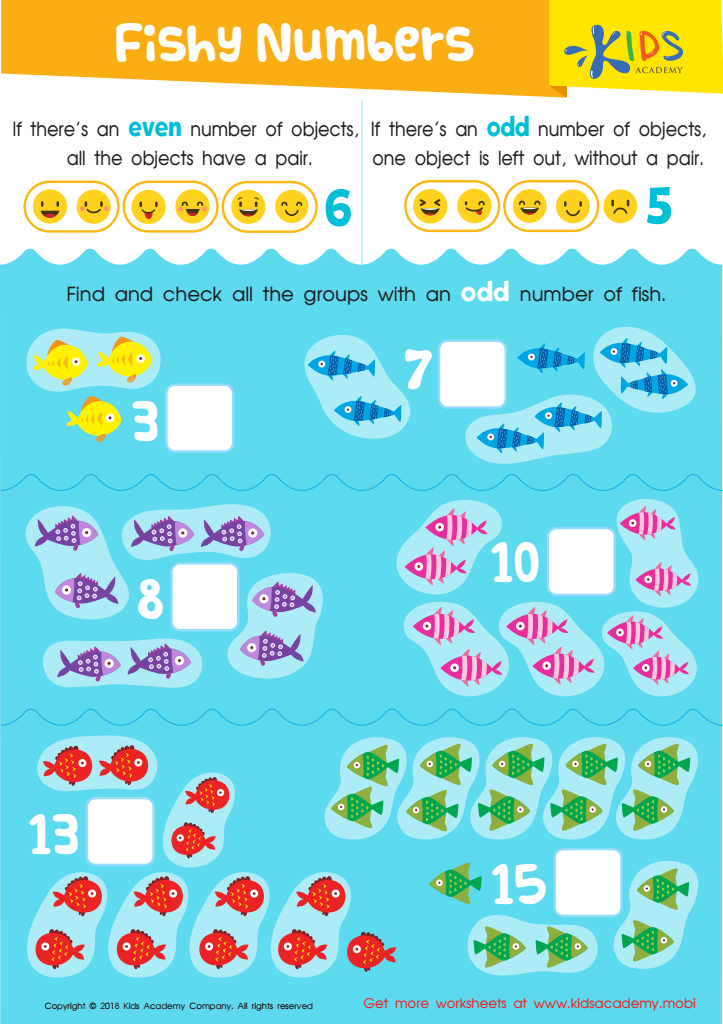

Fishy Numbers Worksheet
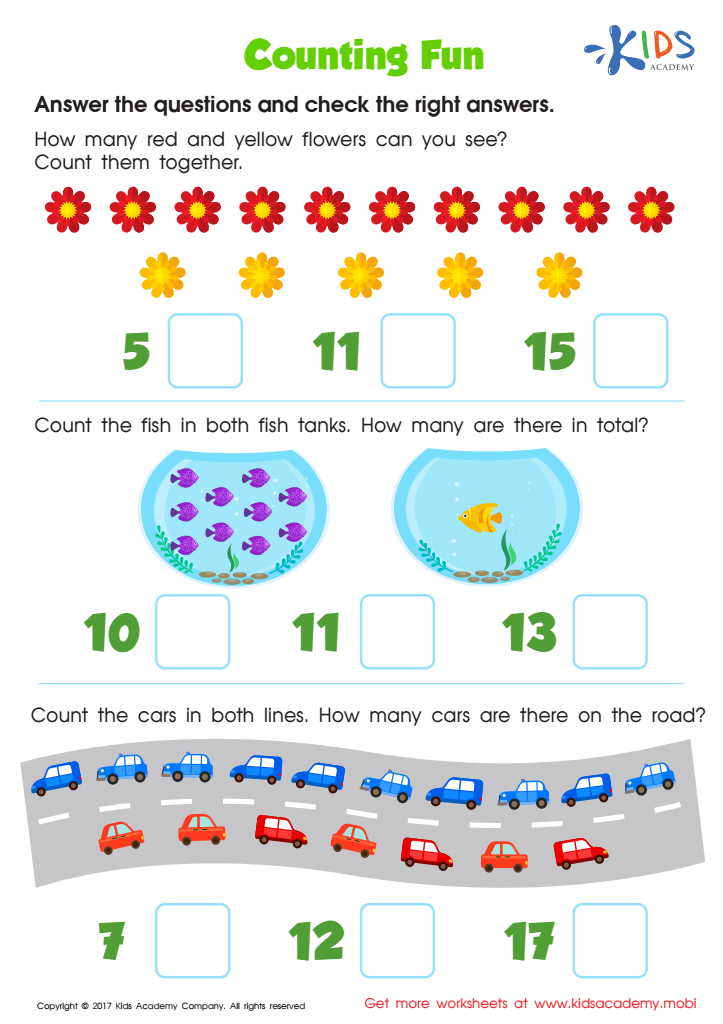

Counting Fun Worksheet
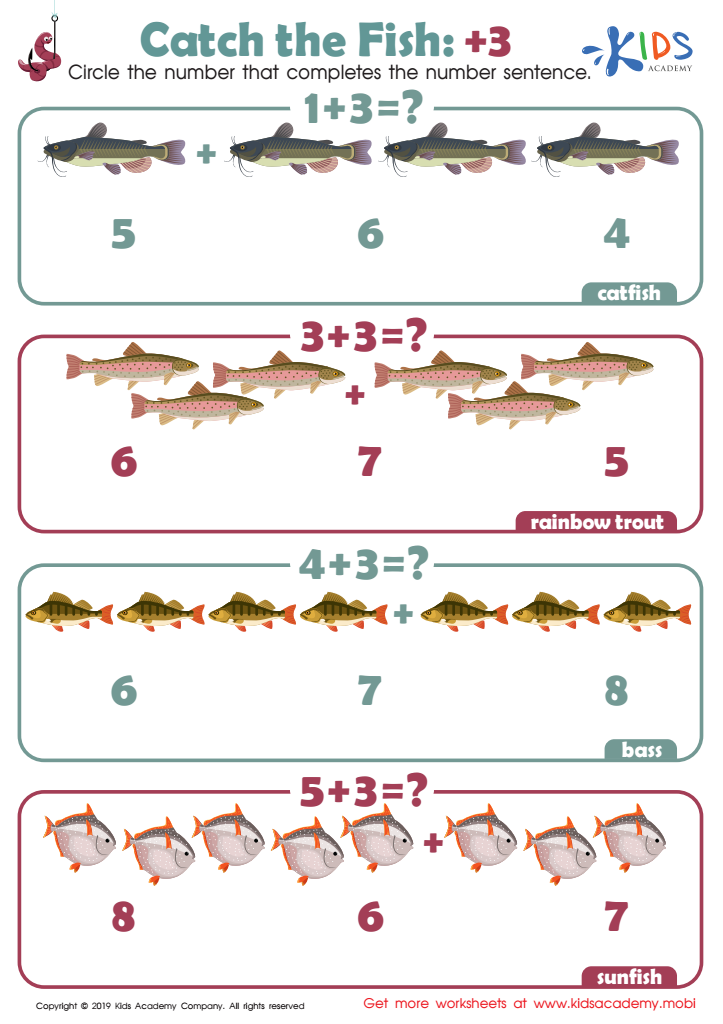

Catch the Fish: +3 Worksheet
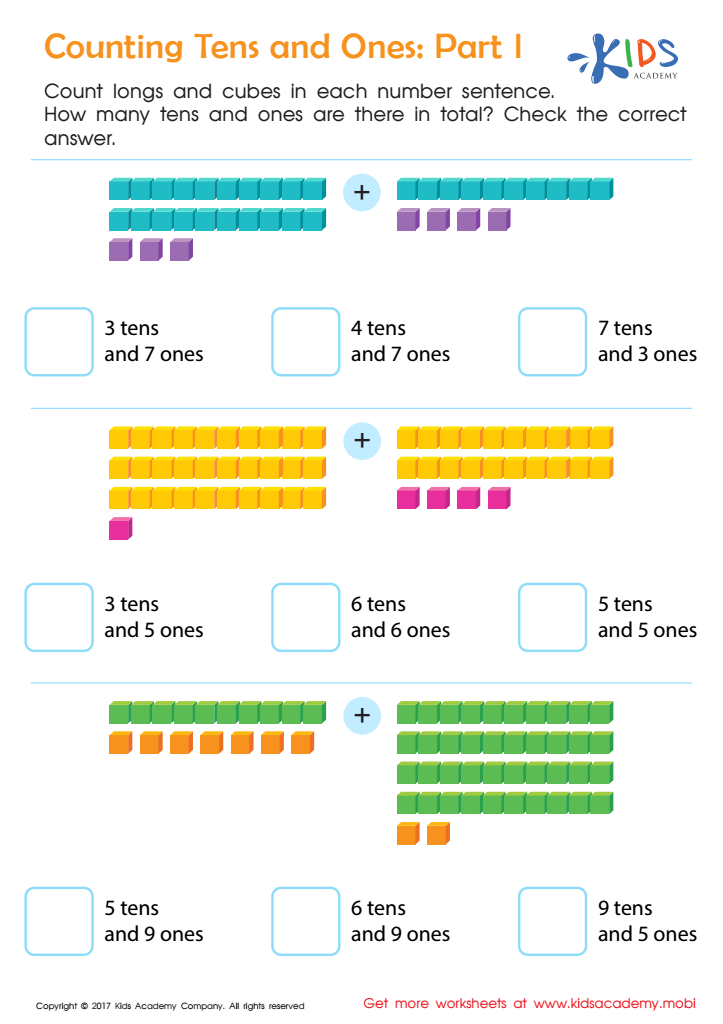

Counting Tens and Ones: Part 1 Worksheet
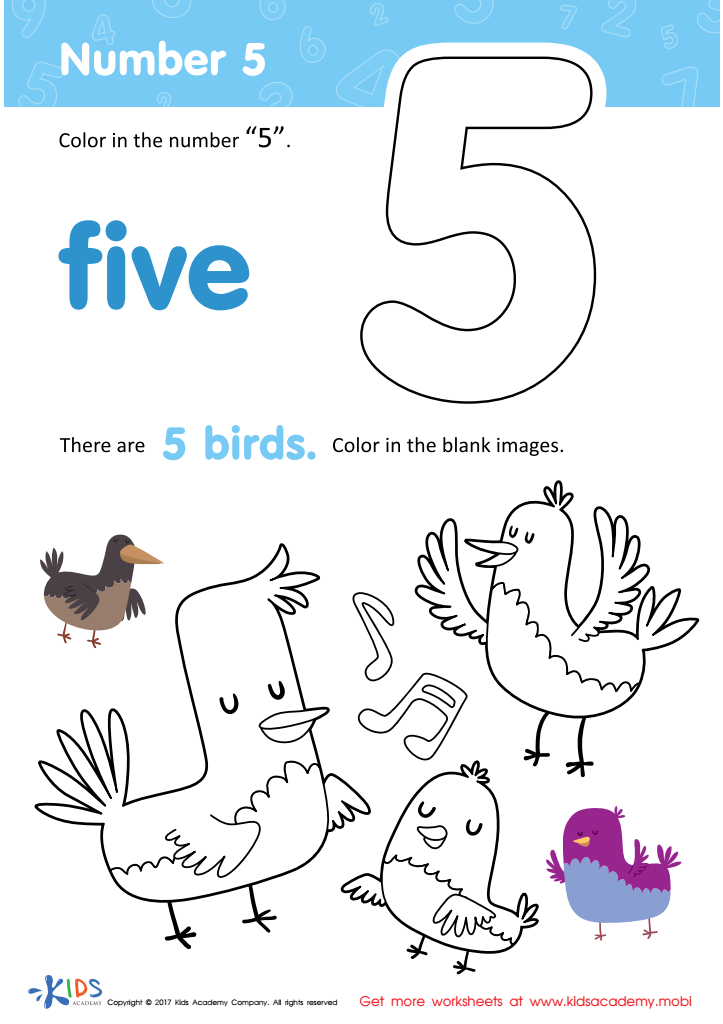

Number 5 Printable
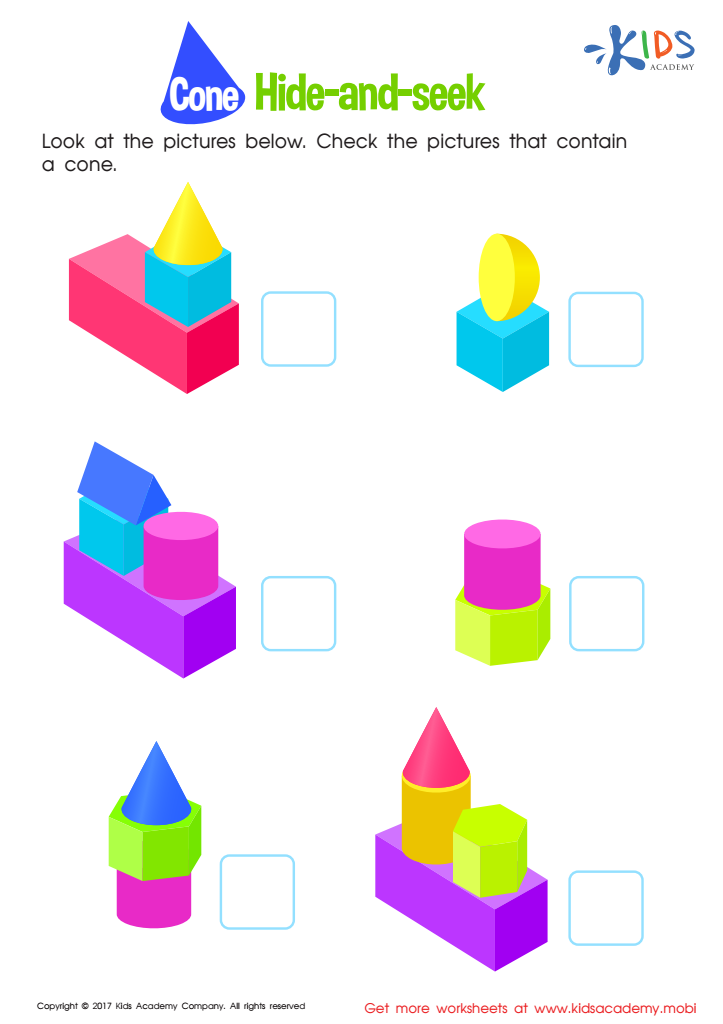

Cone Hide-and-Seek Worksheet
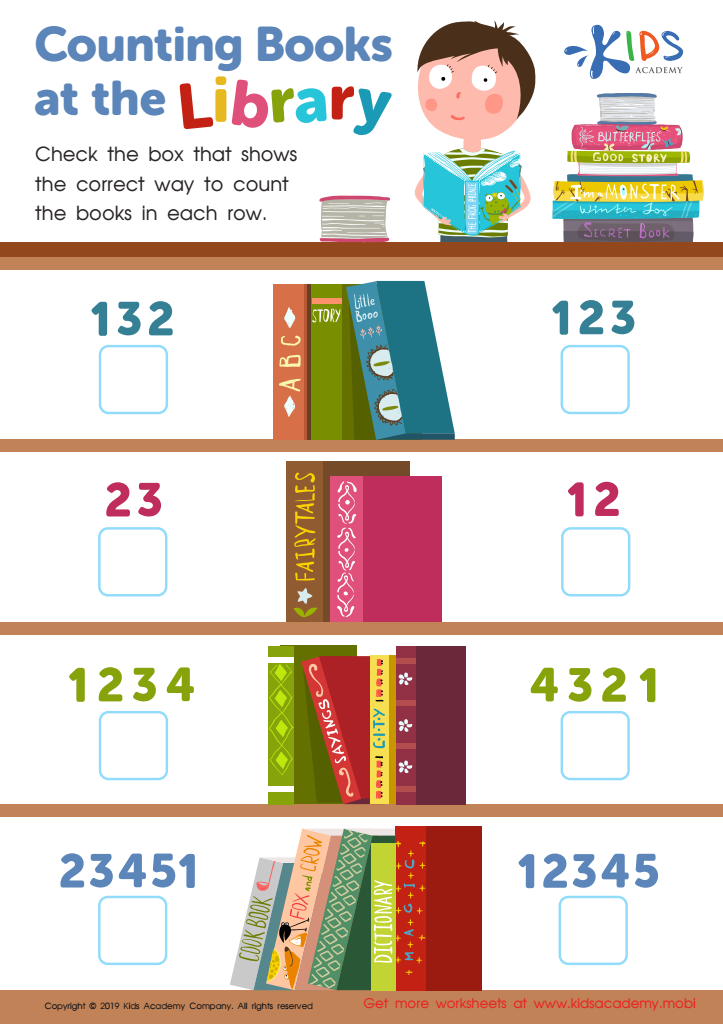

Counting Books at the Library Worksheet
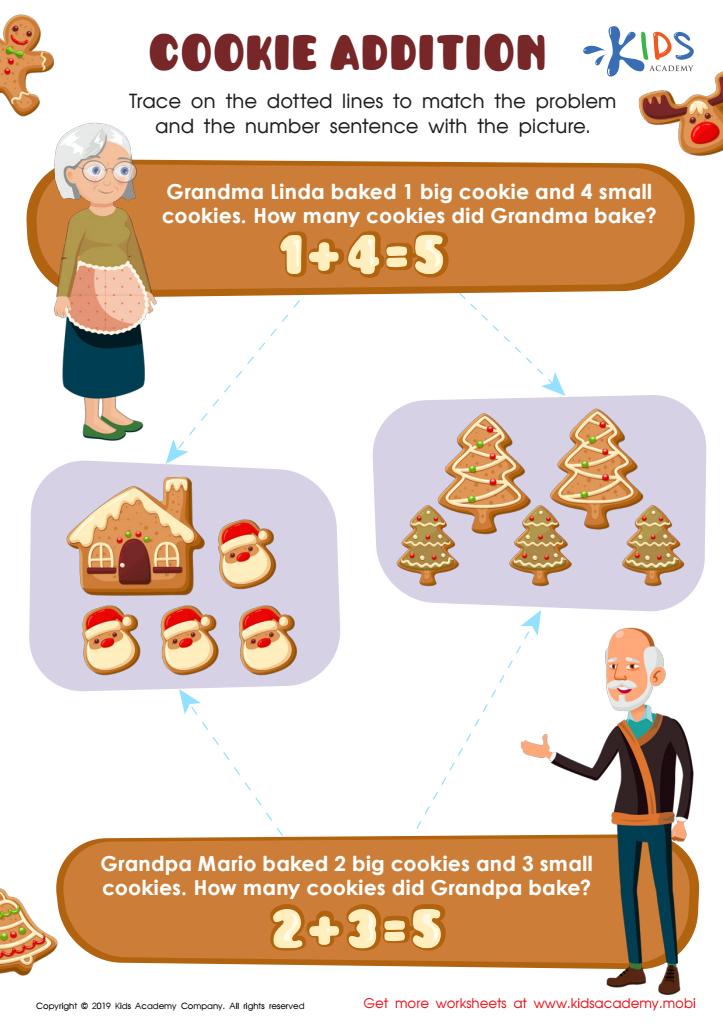

Cookie Addition Worksheet
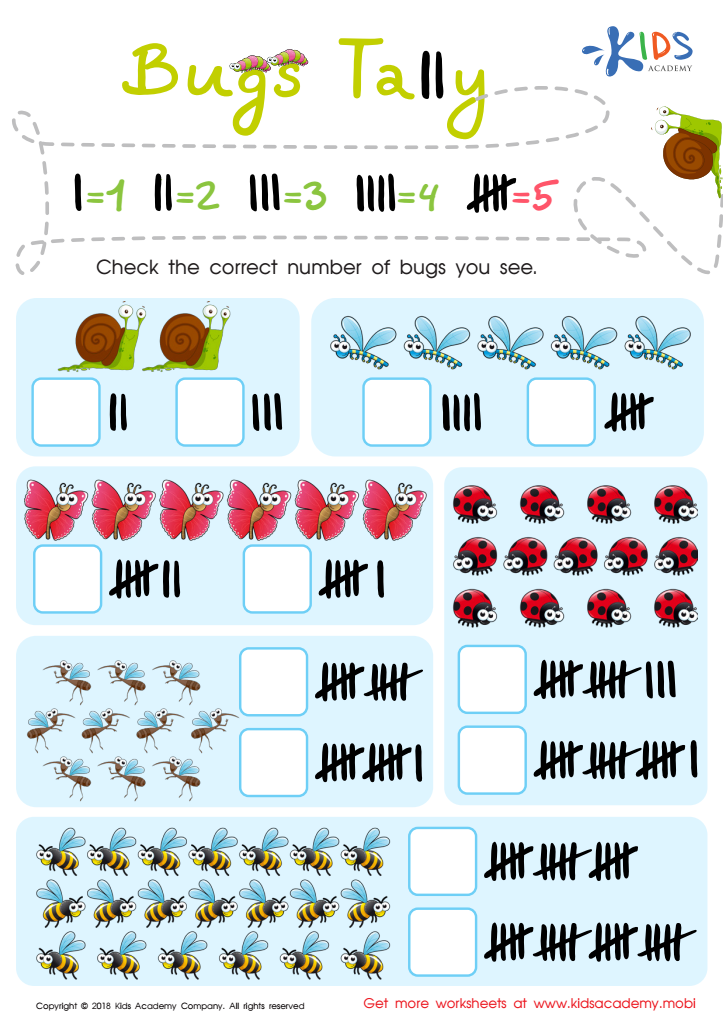

Bugs Tally Worksheet
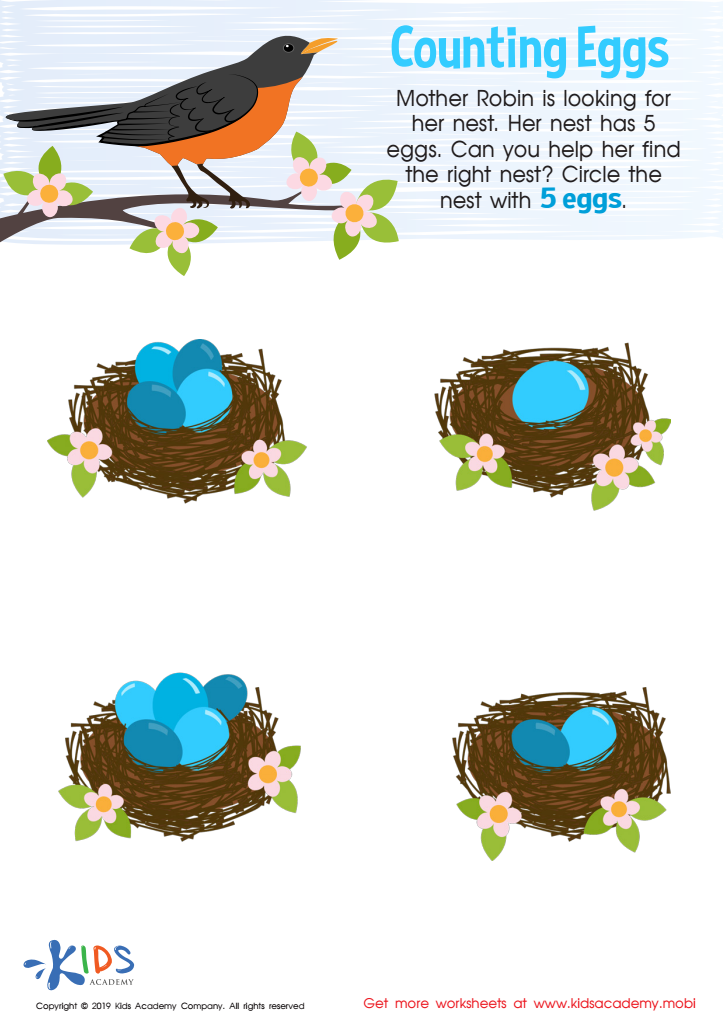

Counting Eggs Worksheet
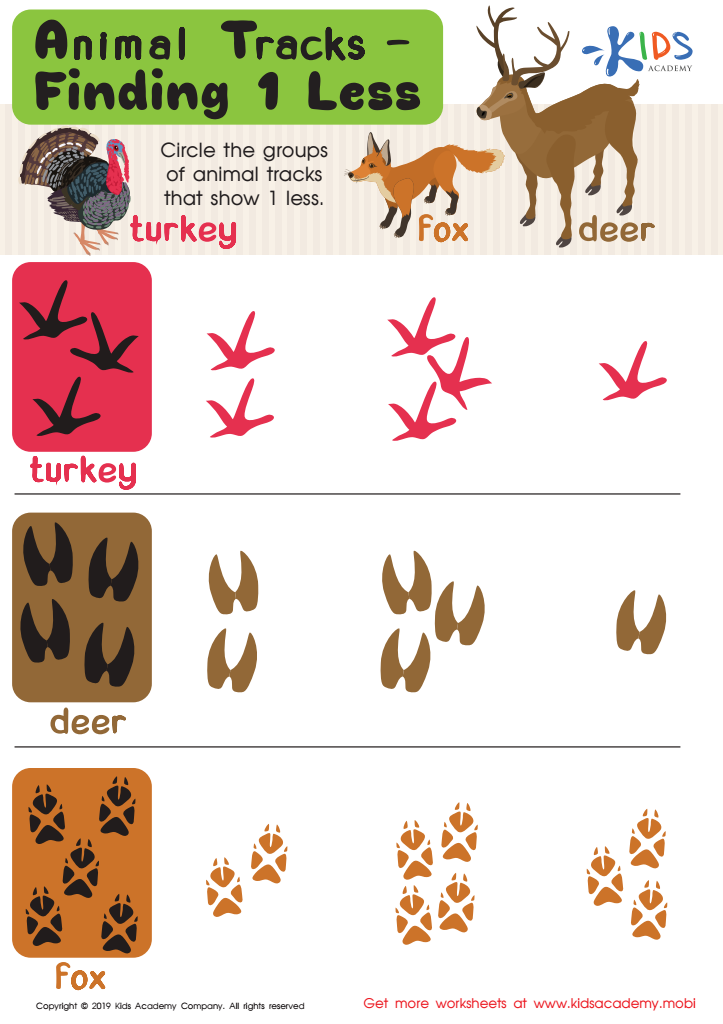

Animal Tracks: Find 1 Less Worksheet
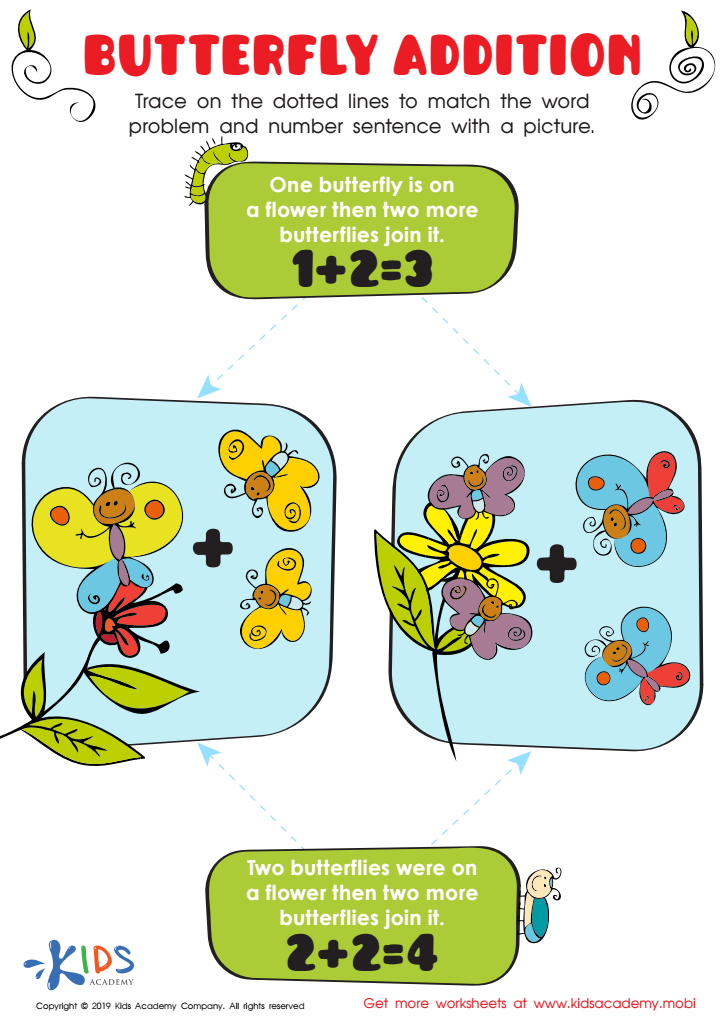

Butterfly Addition Worksheet
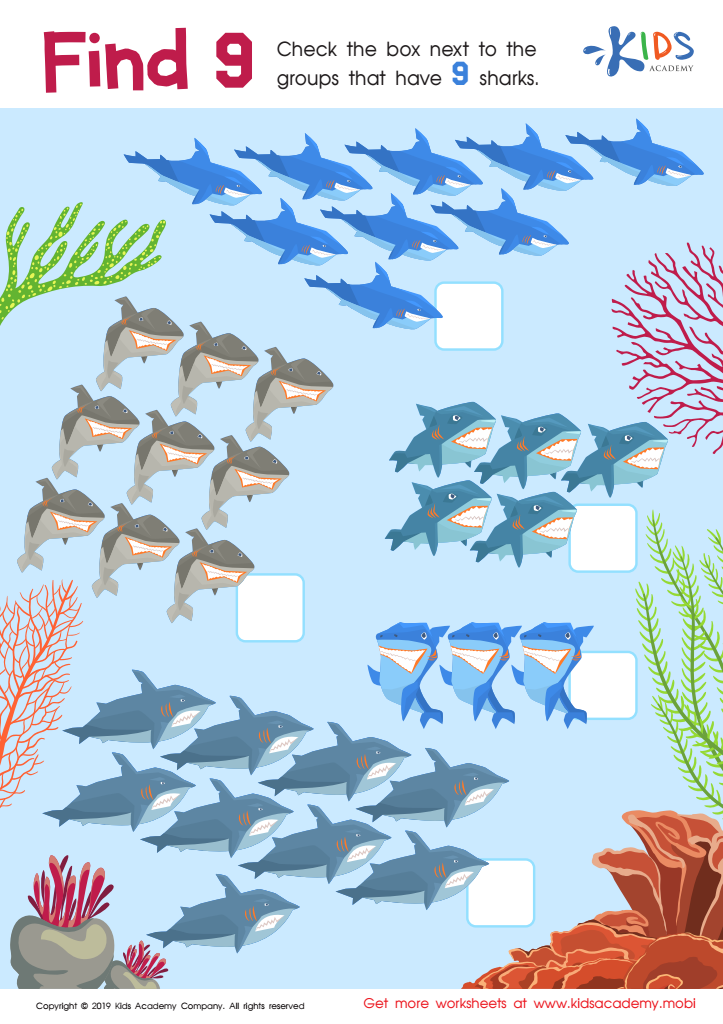

Find 9 Worksheet
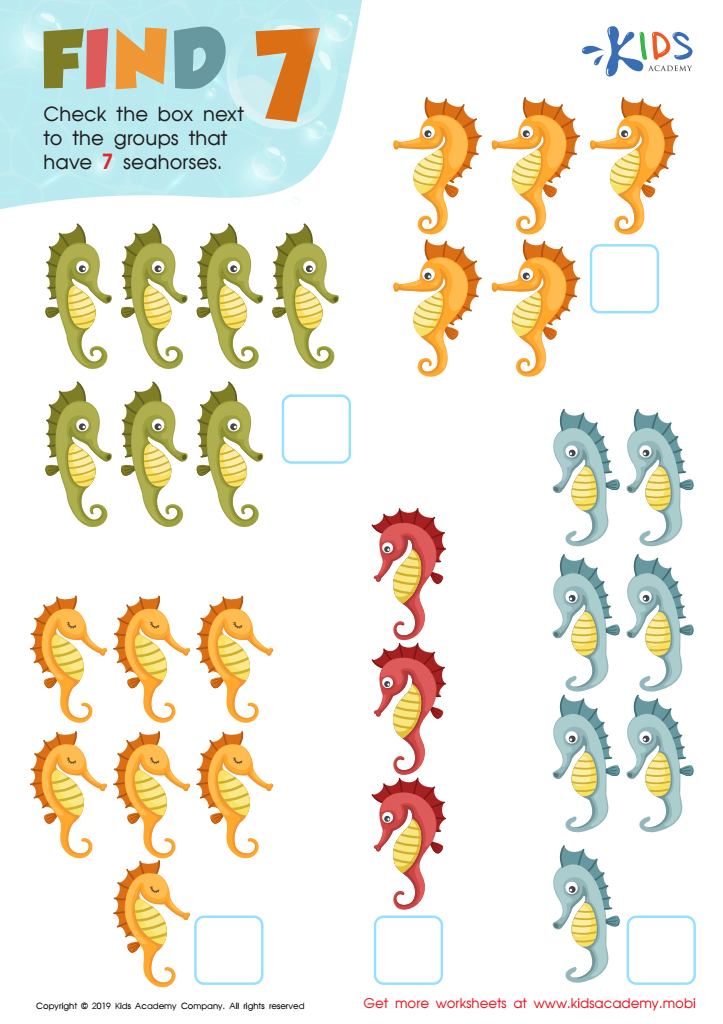

Find 7 Worksheet
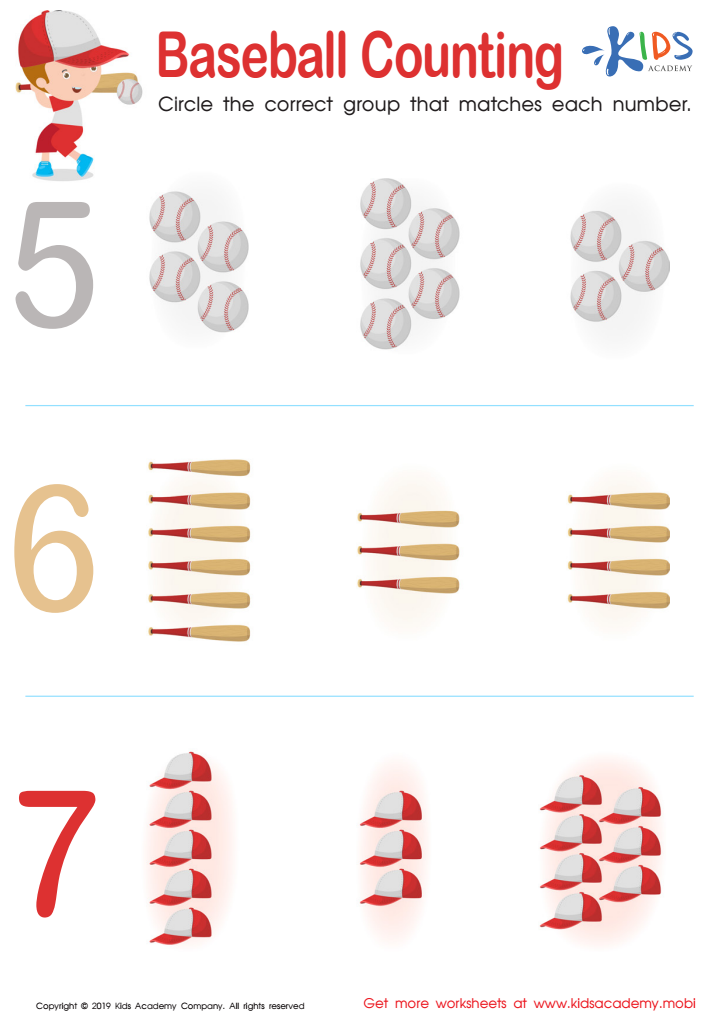

Baseball Counting Worksheet


Counting Seedlings Worksheet
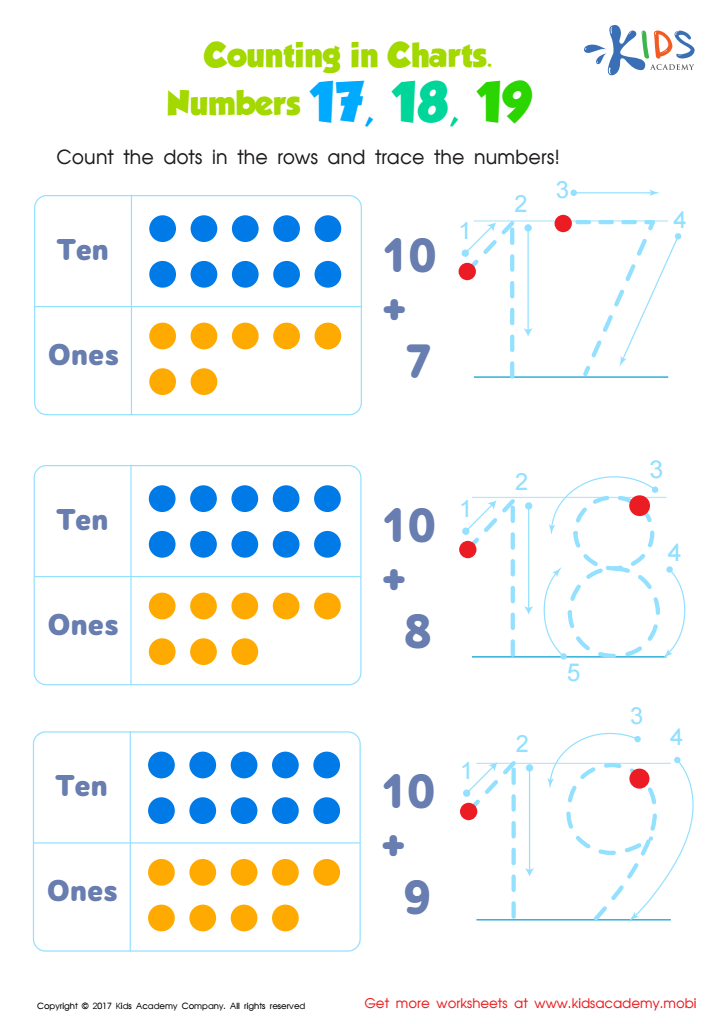

Kindergarten Number Tracing: Counting in Charts Worksheet
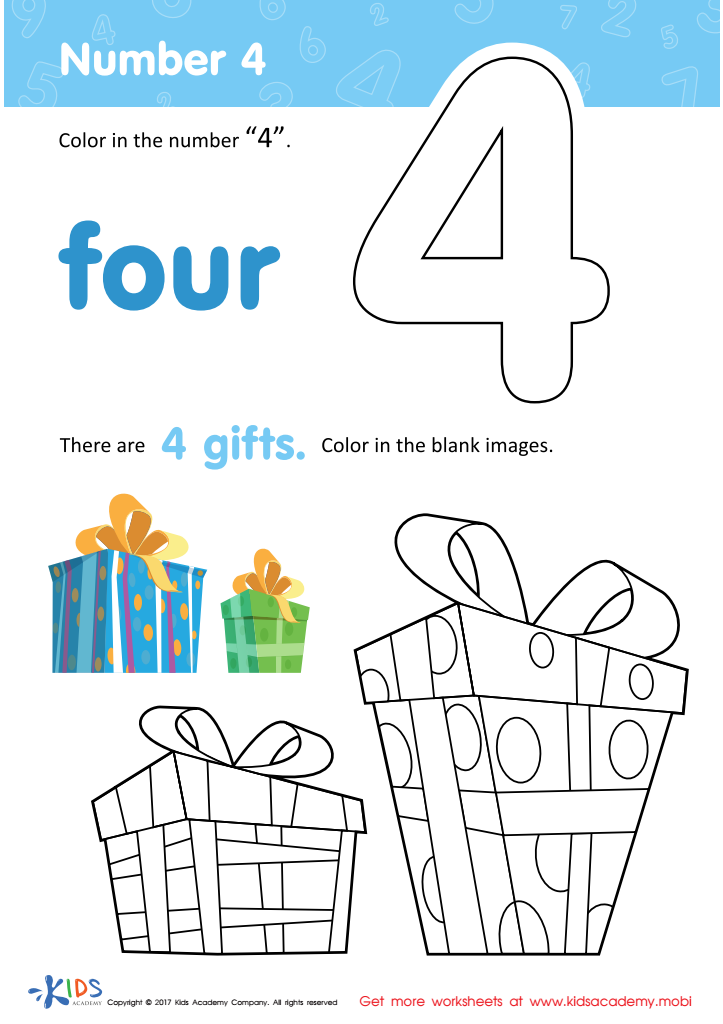

Number 4 Printable
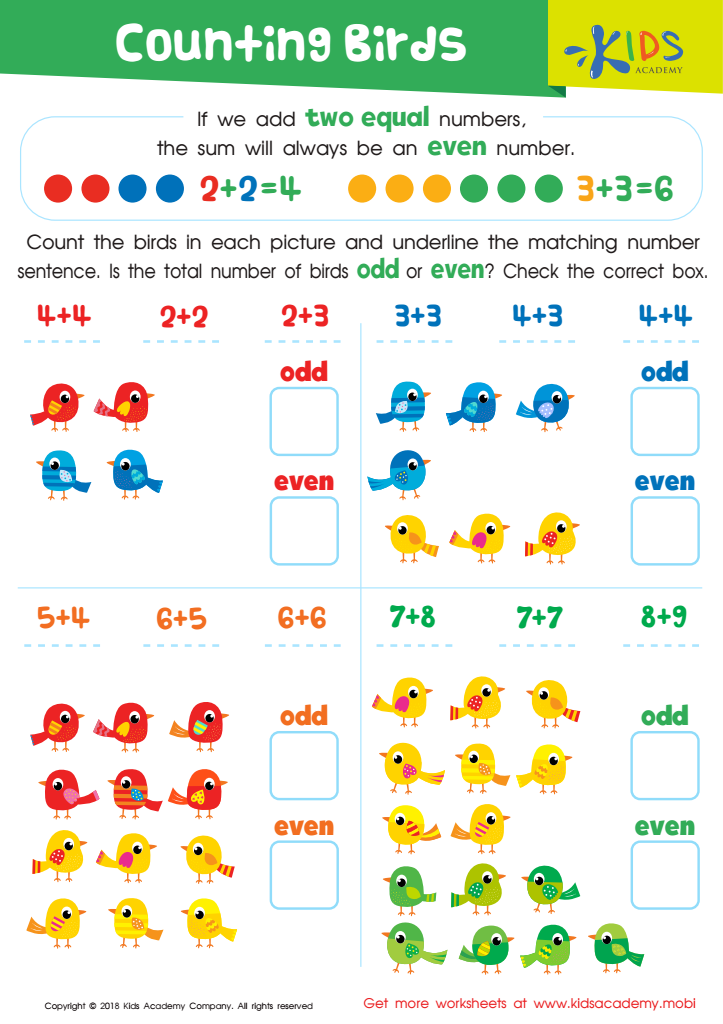

Counting Birds Worksheet
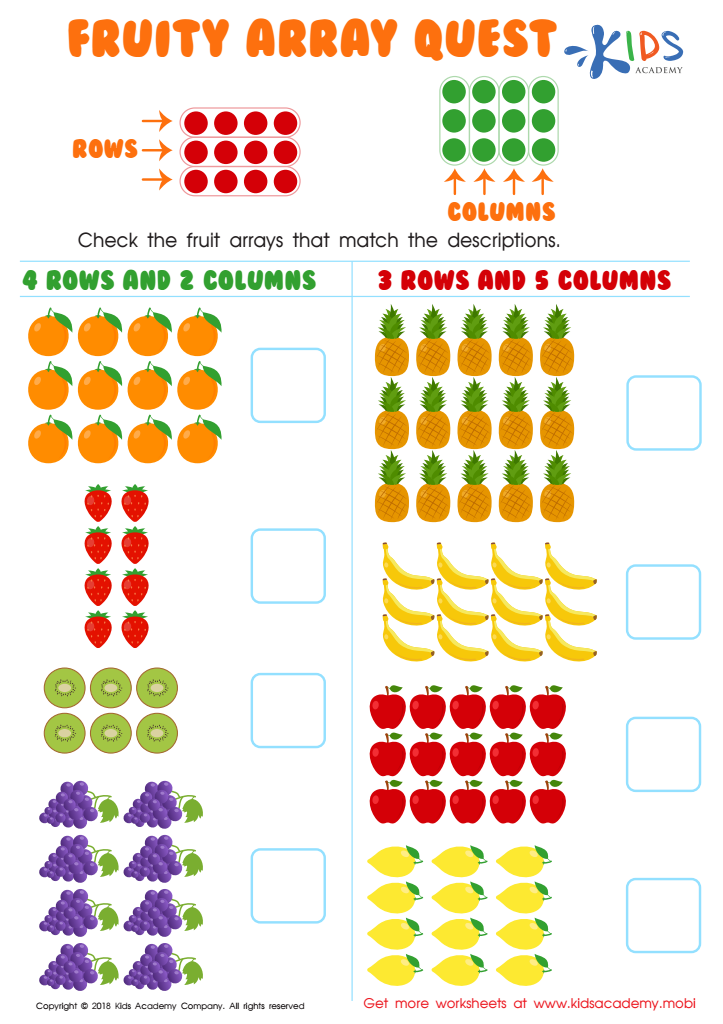

Fruity Array Quest Worksheet
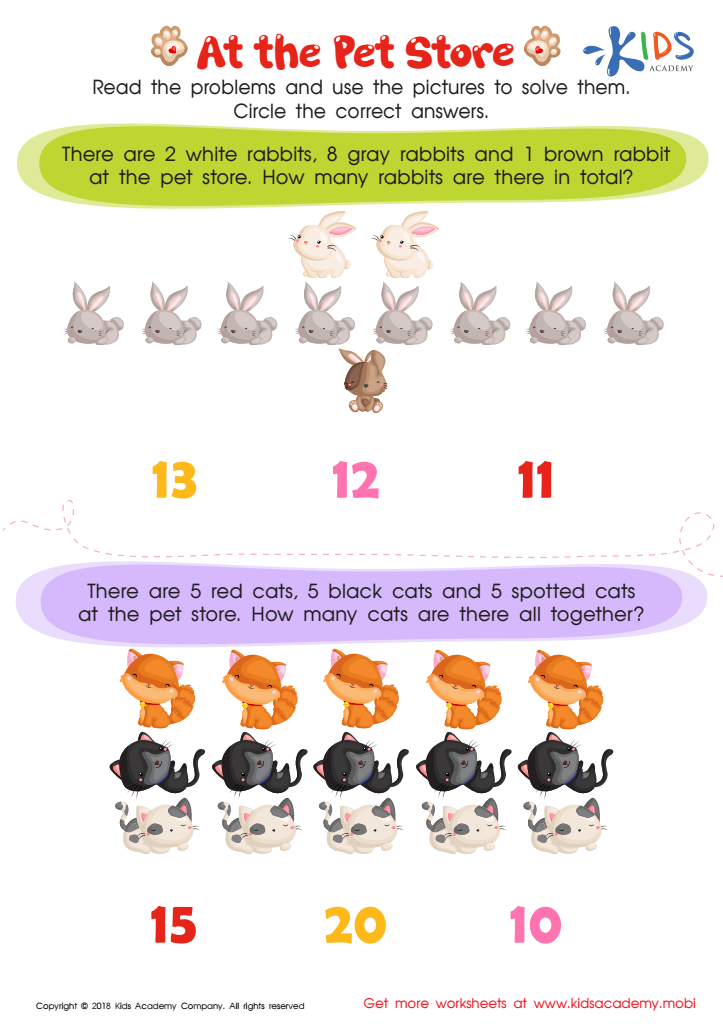

At the Pet Store Word Problems Worksheet
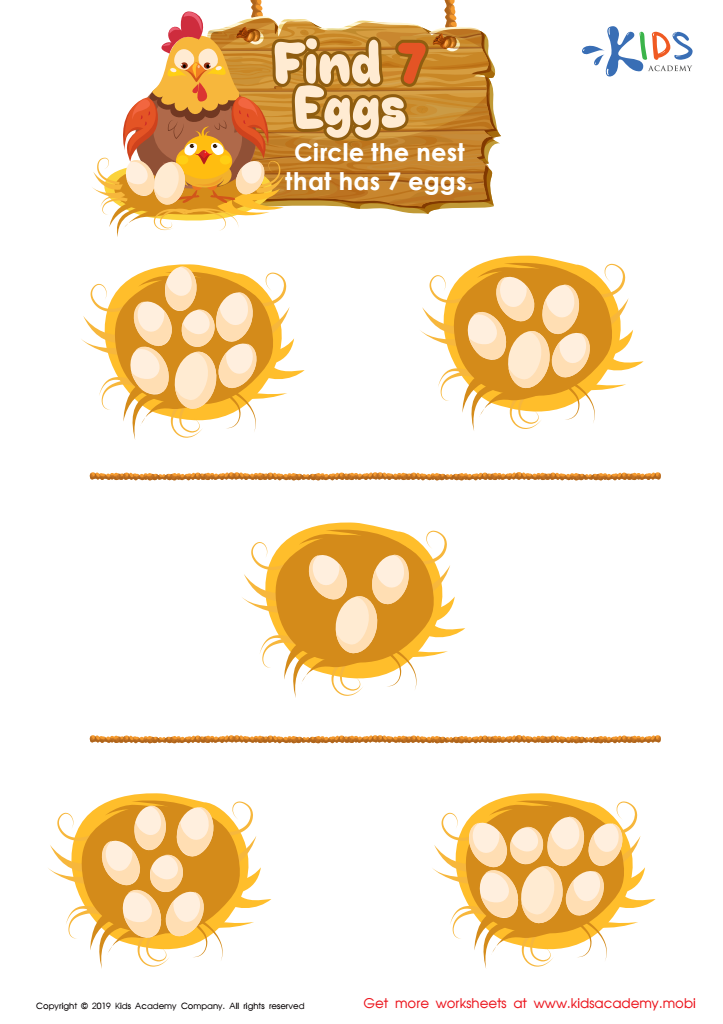

Find 7 Eggs Worksheet
Counting skills are foundational for young children's mathematical understanding and overall cognitive development. For parents and teachers, fostering these skills in children ages 3-7 is critical as it lays the groundwork for future learning in mathematics and other subjects.
During these formative years, children are naturally curious and eager to learn; thus, introducing counting through engaging activities can foster a love for numbers. Developing counting skills enhances children's problem-solving abilities, logical thinking, and critical reasoning. Moreover, these skills help children understand patterns, which are key concepts in mathematics.
Counting also aids in the development of language and social skills. For instance, counting objects can be an interactive activity that encourages communication and collaboration between peers. It allows children to articulate their thoughts and work together, honing their interpersonal skills.
Additionally, strong counting abilities can lead to improved academic performance later on. Research indicates that children who master early counting typically perform better in structured math activities as they progress through school. In essence, investing time in developing counting skills is crucial; it equips children with essential tools for academic success and life skills, making it a priority for both parents and teachers.
 Assign to My Students
Assign to My Students























